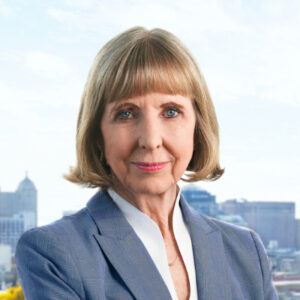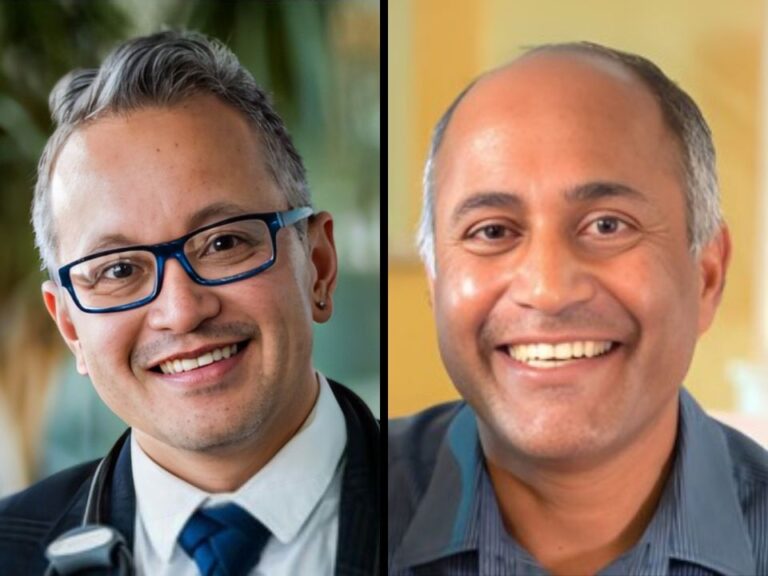We hoped that our city might be “the last place this ever happened.”
That was the wish shared by so many of us in Buffalo, and memorably put into words by New York Gov. Kathy Hochul, a Buffalo native, as she addressed a community aching with grief the morning after the deadly shooting spree at a Tops grocery store on Jefferson Avenue, just a mile from Roswell Park Comprehensive Cancer Center.
But 10 days was all it took for that massacre at the hands of an 18-year-old white supremacist—who killed 10 people, all of them Black, and wounded three people—to be superseded as the deadliest mass shooting in our nation this year.
Now, with the slaughter of 19 children and two adults at an elementary school in Uvalde, Texas—by yet another heavily armed, armored and troubled 18-year-old male—we have an even deadlier attack to cry, pray and fume over.
The layering of tragedy upon tragedy, the compounded weight of these multiple miseries, is hard for any of us to even conceive of, much less bear.
How do we move forward? How do we pick up and get to work? What does running a cancer center have to do with the work to heal and get to a place we can move forward from?
There is a role for everyone who works at a cancer center—and every single person in this country—to reject this horrifying epidemic of mass violence and create a future where this kind of horror can never be visited upon any of us.
I certainly don’t have all the answers, but I can share the takeaways that are in the forefront of my thoughts 13 days after the Buffalo massacre—and three days after the Uvalde massacre.
Our community needs to hear from us—and see us in action—as cancer center leaders
Those of us in leadership roles at our nation’s cancer centers employ thousands of people and serve tens of thousands more. Our positions of power, privilege and perspective demand that we actively engage in and take responsibility for what is happening in the communities that surround us.
It is essential that we get involved in our communities, that we let our neighbors hear from us at moments of triumph and at moments of tragedy.
We cannot be quiet or work in the background when something shakes our community to the core as these violent assaults have. We must be part of conversations among our neighbors on how to help demand, envision, and realize change.
Justice cannot be realized without health equity
Seeing one community, the predominantly Black neighborhoods around Roswell Park, targeted by an 18-year-old shooter who drove more than 200 miles to kill Black people while they shopped for groceries on a sunny Saturday afternoon underscored the fact that there are many persistent inequities that put communities of color at a disadvantage.
While we have made progress against health inequity—and while I am proud of what has been achieved through the community outreach and education missions that are so consciously integrated into the work of comprehensive cancer centers like Roswell Park—we have barely made a dent given the size and importance of the task.
Black people continue to be more likely to die from cancer than any other racial and ethnic group in the United States.
Inequity in health and access to health care is as detrimental as any other form of inequity or injustice. Unless we make faster, better progress to eliminate that disparity alongside our work to eradicate racism and white-supremacist extremism, we will continue to contend with the effects of living in an unjust and unequal society.
Health equity cannot be realized without secure access to health resources
Food insecurity on Buffalo’s East Side, the neighborhood that surrounds Roswell Park and the grocery store where that young man shot 13 people, has been an area of concern for many years.
This community’s lack of access to fresh and healthy foods was made more dire by the temporary closure of that Tops store—the one grocery store serving the whole East Side of our city—for two weeks and counting as a result of the shootings.
Our local community and people around the world have stepped up to fill the gap between the need for food, medications and other essential resources and access to those resources for the people who live near the affected store—but they shouldn’t have to.
In our cancer prevention and community outreach work, Roswell Park has been part of the effort to highlight the importance of structural and social determinants of health, including the need for additional affordable, healthy food options to underserved parts of our city and catchment area—and our strong, longstanding partnerships with community stakeholders have allowed us to quickly step up to support community-identified needs and priorities. Those efforts are a start.
We will continue this advocacy—and other work to positively influence the core determinants of health for the communities we serve—with even greater urgency, making sure stakeholders are informed about the benefits of disease prevention, early detection and appropriate medical care, and the costs from lack of access to these resources.
Our teams are suffering and struggling. We must respond to the acute need for services supporting their mental, spiritual and emotional health.
Inequity in health and access to health care is as detrimental as any other form of inequity or injustice.
So many of us are hurting right now. A startling increase in incidents of self-harm, suicide and violence has been triggered in part by the COVID-19 pandemic, which drove a 25% one-year leap in the prevalence of anxiety and depression worldwide, and intensified by both local incidents like these mass shootings and global crises.
I am concerned about the well-being of our whole team at Roswell Park, and of our patients and our society at large. We are all struggling with so many different pain points, so many stressors that are damaging to our mental and physical health.
We’ve enhanced the counseling and supports available to our employees through our Employee Assistance, Spiritual Care, Diversity, Equity & Inclusion and Resilience programs and created new services to help our team process the grief and suffering they are experiencing as a direct result of the mass shootings inside and outside our community.
We have focused extra attention—particularly in these last two weeks—on communicating these resources and making sure our employees know they are in a safe space where their wellness is valued.
I dearly hope these supports will get our team through these difficult days.
Each of these priorities is an area we, the cancer center community, have the power to help shape. Meeting these challenges will require effective collaboration, new ideas, investment of resources, sustained action.
We are just one part of the solution. It will take more than a united effort among cancer centers to prevent the next Columbine, the next Sandy Hook, the next Las Vegas, the next Parkland, the next Orlando, the next El Paso, the next Buffalo, the next Uvalde.
But we can do our part to help stop this succession of mass tragedies by addressing those underlying dynamics that we do have influence on.
Our commitment to the health and welfare of our communities requires it.











